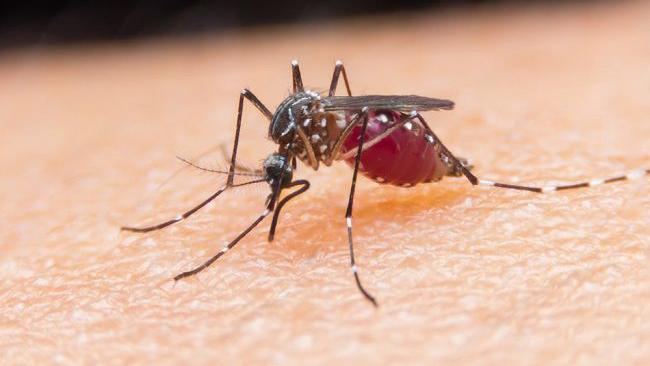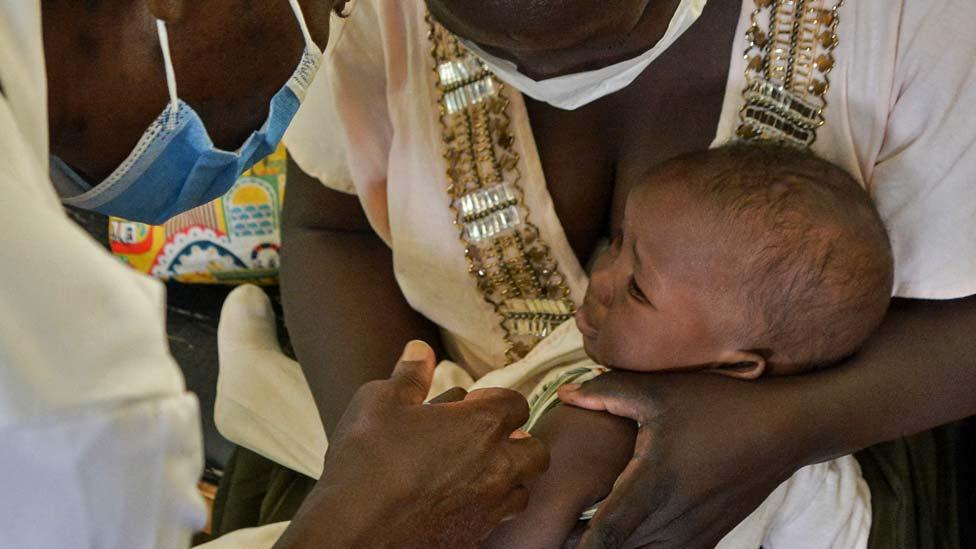Study to deliberately infect people with malaria

Malaria is caused by a parasite that is spread by mosquito bites
- Published
People are to be sent to mainland Europe to be deliberately infected with a form of malaria so scientists can study its effects.
Researchers from the Oxford Vaccine Group want to understand more about plasmodium vivax - a type of malaria that can remain dormant in the liver.
It can reactivate months or even years after a person was first infected, causing relapsing infections.
As part of the research, five healthy people are being sent to a specialist lab in the Netherlands to be bitten by infected mosquitoes.
Professor Angela Minassian, chief investigator for the trial from the University of Oxford, said: "This proof-of-concept study is the first of its kind to safely introduce relapsing vivax malaria infections in healthy volunteers under controlled research conditions.
"By doing so, we aim to answer key questions about relapses and how the immune system responds to them."
'Stop relapses altogether'
Under the University of Oxford study, five healthy people aged 18 to 45 will travel to the Radboud University Medical Centre in Nijmegen - where they will be bitten by mosquitoes carrying the Plasmodium vivax parasite.
Following the bite, participants will return Oxford and will be monitored daily.
When malaria is detected in the blood, the subjects will be "promptly" given anti-malarial medication, which will not eliminate dormant parasites in the liver.
Over the following six months, people involved with the study will have fortnightly check-ups and will have 24/7 medical support to address any symptoms that suggest a relapse.
Following this, everyone involved in the study will be given treatment to kill any dormant parasites in the liver.
They will then be followed up for five more years to monitor for any unexpected relapses.
More than 80% of cases of the most common form of malaria across the globe come from relapsing infections, Prof Minassian explained.
She said: "Our work, if successful, aims to provide a model for testing novel vaccines or drugs which can eliminate it from the liver and stop relapses altogether.
"This could transform how we combat this challenging disease."
Get in touch
Do you have a story BBC Oxfordshire should cover?
You can follow BBC Oxfordshire on Facebook, external, X (Twitter), external, or Instagram, external.
Related topics
- Published30 September 2024

- Published16 July 2024

- Published8 September 2022
